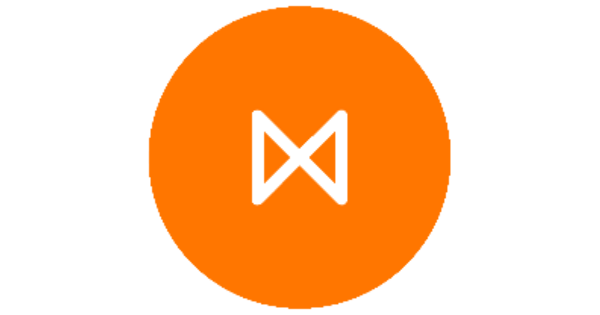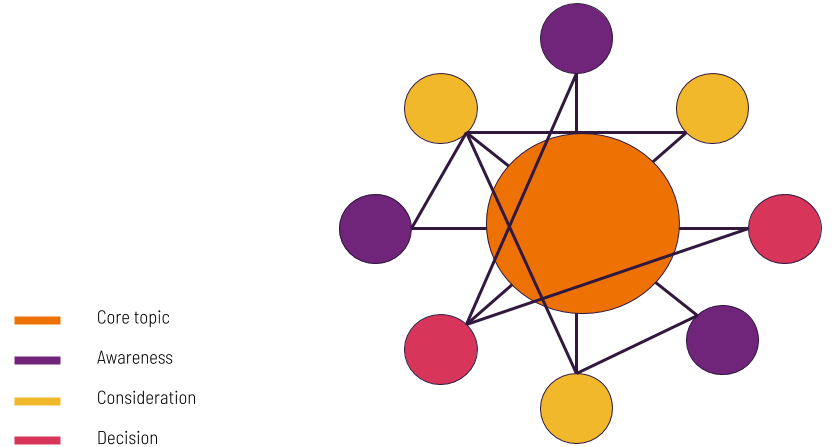We all hear about the importance of SEO… SEM… and even SMO…. which… is a thing. And. I just found out it stands for Social Media optimization. But why are all these acronyms so important in marketing? And how do you get to the level of expertise and almost obsession with all these key performance marketing indicators? Find that out and more in this episode of Forward Thinking. Karim is the head of marketing for Mad Paws, the pet service startup that recently bagged $12 million dollars in their IPO earlier this year. With the help of everyone’s common denominator, love for dogs, this pup business thrives on user-generated content and is one of the largest content producers in the pet industry in the world. Tune in as Karim discusses how he applied the marketing funnel, growth mindset, and SEO to grab the attention of 14 million dog owners across Australia.
What you will learn in this episode

- Karim’s practical guide on how to learn marketing for your business
- The first marketing channel you should try when launching your business
- How to create ambassadors of your business from your existing customers
- How Mad Paws implemented their most successful user-generated content campaign that resulted in national press coverage around the country
- The advantages of taking your dog to the office
- Ideas to start your first marketing competition
- How to instill a growth marketing mindset across your entire company
- How to identify the metric that matters the most when you are just starting your business
- The North Star metric
- How Karim uses meditation apps to achieve balance in his busy day
- How Mad Paws built credibility and trust with their target audience
- What is technical SEO and why is it so important for your business
Notable Quotes

- “I unlocked this obsession of mine with performance marketing and really seeing the potential that you can drive at the grassroots for businesses of all size”
- “It’s something that we’re very proud of – being able to unlock that community and network effects to provide value and validation for our brand”
- “The north star metric obviously is the one metric the business cares about”
- “How do you convince a social media manager that they’re driving that north star metric when they’re focused on engagement? It’s about breaking down whichever step in the funnel you’re looking at moving”
- “We’re living in a mobile-first world anymore. Your whole user journey and user experiences are in someone’s pocket”
Resources mentioned:
- Mad Paws
- The Iconic
- Rocket Internet
- Food Panda
- Pets in the Office, 4 things we learned!
- Linktree
- Billy Sixes
- Calm.com
- Headspace
- The Million Dollar Homepage
- Crossing the Chasm by Geoffrey Moore
What business would you build on Mars?

Table of Contents
ToggleI would literally find five different things, whether it be services, experiences, or anything like that. Five’s probably putting a cap on it, maybe 10, maybe 20, maybe 50. I trial all of them and there would be a few of them that would stick. I’m not necessarily the big entrepreneurial type where I’ll come up with the next artificial intelligence software that’s going to tell you when your car blink is out or something like… But I’m an executor. Being an executor enables me to try many different things and look for growth within those many different things. Definitely something service-based. Something that’s going to turn into a commoditized need on a daily basis. I wouldn’t necessarily be an operator, but I’d be a person who has a lot of knowledge on Mars with that skill set.
Reach Karim Here:
Transcript (or download the pdf here)
[00:00:00] Daren: We all hear about the importance of SEO SEM, and even SMO, which is a thing. And I just found out it stands for social media optimization, but why these acronyms? In marketing. And how do you get to the level of expertise and almost obsession with all these key performance marketing indicators? Find that out and more in this episode of Forward Thinking. Hey everyone. I’m Daren Lake, the audio content manager here. Welcome to Forward Thinking, a podcast by Metigy. In this series, we speak with inspirational business owners, brands, and marketing experts to learn from their experiences on the front line and uncover what it takes to build a world-class business. In this episode, we go deep. So deep at borders on obsessive with Mad Paws Australia’s head of marketing, Karim Mouahbi. With the help of everyone’s common denominator, love for dogs, this pup business thrives on user-generated content and is one of the largest content producers of the pet industry in the world. In this episode, Karim discusses how he applied the marketing funnel growth mindset and SEO to grab the attention of over 14 million dog owners across Australia. Yes. 14 million. The first marketing channel you should try with launching your business, how to create ambassadors of your business from existing customers and so much more. Here’s the conversation with Brendan and Karim.
[00:01:32] Brendan: Karim! Welcome to the show.
[00:01:34] Karim: Thank you very much for having me.
[00:01:35] Brendan: So I know you’ve been working at Mad Paws now for around four years, but let’s wind back the clock. What was your first exposure to marketing?
[00:01:43] Karim: Originally when I first started in marketing was back working for a small search agency. This was before the mobile days or anything like that. I was really tight-tailored towards, Google ads and driving phone calls for small to medium businesses. After about two or three months of working at that small agency, I unlocked this obsession of mine with performance marketing and really saw the potential that you can drive at the grassroots for businesses of all sizes. Yeah, it was just a kind of became obsessed. This was almost just over nine years ago. This was before, as I said, the mobile days. So everything was going on to the desktop. Really trying to drive as many calls and leads for small to medium businesses, like plumbers to chiropractors, to the best, skip-in removalists, and things like that. From there I was at that small agency for about two, two and a half years. Then that’s, I just, after that I’m not just after that while I was there, I, I started searching one evening for some clothes online, and this sounds a little bit ridiculous story, but while I was searching, I came across an ad for a company called The Iconic. This was before there were any big above-the-line campaigns or any heavy brand campaigns. It was just simply this website that had all these cool brands that I’d never heard of. These cool brands that I had heard of that the company I’d never heard of. So I remember I bought a Ben Sherman shirt, funnily enough, and then I checked out the careers page and they were looking for a head of SEM. I was in no way, shape or form, ready to become a head of SEM. But I just sent them an email and I was like, “Hey guys, this looks cool. Who are you? And are you hiring for any other roles?” They got me in for an interview and I literally got obsessed. There were barbecue tables and models walking around the catwalk for photo shoots and there were many different rocket internet companies in the same building. I was like, I dunno, what kind of madness this is? I never heard of you. I don’t even know if this is legal. I got to be a part of this. So that’s when the obsession with startups really happens from there.
[00:03:32] Brendan: Right. What were some of your key takeaways from working at The Iconic?
[00:03:35] Karim: Not necessarily just The Iconic, but also at Food Panda, which is all part of the rocket internet universe basically propelled my learning faster than anything. I can imagine the opportunities to learn in places like that are just so incredible. The more you put into it, the more you definitely can get out of it. There are a few articles out there about the life and the work-life balance of working at Rocket. But I think it really comes down to if you really want to learn and learn in a practical environment. It’s a fantastic opportunity for you. So with so many moving parts and so many changes, and it’s like a combination. You find people that are proven executors that can deliver on something really high academic achievers. That combination is really dangerous of building something really powerful. Hence if you look at The Iconic or Food Panda, that’s gone on to be acquired by delivery hero or more locally in Australia, the Marley Spoons and the Hello Freshs of the world. [00:04:23] Brendan: Y ou speak of learning how to learn and obviously market. It’s a massive beast to master. How do you learn marketing I with so much noise. How do you focus and what sort of tools and resources do you use?
[00:04:35] Karim: With learning it comes down to as I said, I’m a very practical learner. I don’t necessarily like to go and learn. In theory, I’m actually a university dropout because I really found that I was learning so much more by being hands on. But in terms of learning it’s by finding, having conversations with people, testing new things, validating things while you’re testing them, and really trying to understand what metrics you’re trying to move with this particular learning or this particular test and yeah. Making sure that you’ve got the right to the right tracking in place to gather those learnings and move forward.
[00:05:05] Brendan: So for any early stage businesses listening, they don’t know where to start with marketing. They don’t know how to learn it. They’ve got a lot of other tasks on their plate. What advice do you give those guys?
[00:05:15] Karim: This is a very common question that I get, and I think it all comes down to if you validated your product. I assume that most people out there have validated their product. There’s a specific demand for it. If there’s demand for it, there’s going to be search volume for it. There’s probably going to be a lot of players out there beating on specific non-branded keywords or industry related keywords, but it’s a good way to understand whether or not your product is viable and also gain some initial early traction. So yeah, definitely Google.
[00:05:40] Brendan: Let’s circle back to Mad Paws’s now. So it’s Australia’s largest pet sitting platform. I was checking out your LinkedIn profile before this interview, and I noticed that you composed an article on dogs in the workplace. So dogs decrease stress in the workplace can increase morale between employees and that’s something I’m trying to do at our workplace. At the moment, the Sydney startup hub, unfortunately, dogs aren’t allowed at the moment. It’s a shame. It is a shame, hopefully that will change soon. But from your experience, dogs in the workplace, what have you seen?
[00:06:11] Karim: Everybody knows the statistics, dogs create happiness dogs create a sense of comfort. If two people are two completely different personality types, and they’re clashing over a specific project at work or a hypothesis that’s unvalidated, everybody’s common denominator is their love for dogs and pets. They bring a sense of calm the office and that’s what we find at man pause. We are one thing that really enables us to have dogs in the office and the reason why we chose our current working space over others was because obviously we’re a pet marketplace, so we’re all obsessed with pets and it comes to the stems all the way through as part of our culture. It’s one of our values and our business. So yeah, I think in terms of what the impact it has is it makes everybody a little bit more calm, but also it reminds us what we’re trying to achieve here. At the end of the day, we’re trying to build Australia’s largest pet community and having dogs in the office. It really brings that sense of love at a grassroots level when we’re making our decisions or moving forward with projects. [00:07:02] Brendan: What are you most excited about now in terms of marketing at Mad Paws?
[00:07:06] Karim: In terms of marketing at Mad Paws? I think there’s a few things. We’ve got a lot of moving parts. We’re very focused on our organic side of things at the moment. We’re also very focused on our internal referrals. Activating our database in new and exciting ways, but also enabling our pet sitters within our community to go out and become true ambassadors of our business and really try and drive organic acquisition through them as well, because yeah, being a two-sided marketplace, you want to have the best pets that is on the platform, but you want to make sure that they also have the best experience with the best owners and likewise vice versa. Yeah, it’s really about trying to empower both pet sitters to run a full sale self-service pet service through our platforms. One of the
[00:07:47] Brendan: things that you guys did really well is the user generated content. I was looking up some statistics before, so 29% higher web conversions with user generated content and people find the content 35% more memorable. And obviously you’ve got some great content to work with dogs and other kinds of pets. What kind of activities are you guys doing around user generated?
[00:08:08] Karim: We do so much with user generated content. As I said, we’re a community. So people love to talk about their pets. If you find a dog owner on the street, or if you’re walking your dog on the street, and it’s the same breed of dog that somebody else has, they’ll literally come up to you and start talking. We find that with every day sharing content with us, or whether it be through social media or through emails and so forth. So one of our most successful user generated pieces of all user generated content campaigns was we threw the call out to our database and say, We want to crown in every single state Australia’s dog of the year. Then from there we want to also crown the national dog of the year. So we said, send us through some images of your pets and also tell us why your dog deserves to be in 25 words or less. We had thousands of entries, apps, like it was absolutely insane. People was creating videos and sending it to us. People were doing like interviews with their dogs. They really got into the spirit of it. It had an amazing output for us in the end because we managed to get coverage in all local newspapers around Australia, and then also national press as well. It’s something that we’re very proud of being able to unlock that community and network effects to provide value and validation for our brain. And more recently, we’ve also done Australia’s most huggable cat. Yeah, it’s very interesting because you can imagine how some cat or pet owners would try to explain how their pet is the most huggable cat. So yeah, it really shows the power of user generated content. How far you can stretch it but also people want to be, feel like they’re being included in something. And that’s what our community is all about. Engaging with all areas of it.
[00:09:41] Brendan: Really interesting. How can small businesses, maybe they don’t have the emotional connection to their audience through their pets. How can these guys, you mentioned before you’ve worked with all kinds of industries, like plumbers or electricians. How can these guys activate these tactics that you’re using?
[00:09:57] Karim: I think it’s competitions like launching Australia is like trying to find Australia’s dog of the year. It can be plugged into other businesses for sure. If I think about companies who are looking to create user generated content, Every plumber knows probably somebody who knows how to make a video. Okay. Then from there you can say something like, Hey guys, we’re trying to gather as much video as we possible video marketing, as we possibly can to promote plumbing, safety, or something like that. Send us a short clip about how you practice plumbing safety. You could go in, in the running to win a I’m not too short, maybe a thousand dollar toolkit. So it will cost you maybe a thousand bucks or maybe you’ll be able to get a a sponsor for this particular company. From there, what would happen is you would have access to endless amounts of video content that you can chop and change for marketing and so forth. You’d also have access to this huge database of people who already engaged with your brand. There’s many different ways you can. Yeah. Awesome. I know you’re
[00:10:51] Brendan: a passionate growth marketer as well. Can talk us through some of your own growth marketing processes. I think growth marketing is starts with the mind. Okay. You really want to, what we try to do is we try to get all people in the room who could potentially have some sort of input or could find it useful based on what we’re doing. Okay. This just doesn’t stand from the marketing team. This also goes into the product technology, customer experience and everything like that. What we want to do is we want to highlight the problem that we currently have. Then from there we go through and we map out how we can possibly impact. Have an impact on that problem. Then as I said before, you really want to highlight what metrics you’re looking to improve. During that during that process and really validate the process before you try to scale it, there’s absolutely nothing wrong with starting very small and moving towards something that’s bigger and more scalable and longterm. You’ve mentioned metrics before. How does a small business they’re just starting out? How do they identify the metric that matters the most? I mean their north star metric. [00:11:44] Karim: So glad that you mentioned that north star metric is something that I’ve been using so much lately whenever I talk to any, anybody from any business. Okay. So the north star metric obviously is the one metric that the business case. Yeah, but if it’s a larger company, even a medium-sized company, like Mad Paws, how do you convince a social media manager that they’re driving that north star metric when they’re focused on engagement, how do you convince your campaign? A CRM manager that they’re driving the north star metric with their types of work that they’re doing. I think it’s about breaking down whichever step in the funnel you’re looking at moving. So for us revenue is our north star metric, which then can be broken down into pet owner acquisitions. If we’re trying to drive all pet owners, booking inquiries in a specific. We have to first understand, okay, what do we need? We need a high number of booking inquiries from pet owners. We need responsive pets. It is on our platform. Okay. So then we figure out, okay, which two areas are we going to drive the most to post this metric? And then eventually that’s going to impact the top line.
[00:12:40] Brendan: Yeah. Awesome. Going to the struggles now, what are you guys struggling with at the moment?
[00:12:46] Karim: Yeah, look, I wouldn’t say that we’re struggling. I tell you what, one thing that we’ve always struggled with is dogs can’t talk dogs can’t talk. So we don’t know whether or not they’ve had a good experience. Sometimes it turns into he said, she said, But if dogs could talk, we would be able to validate the quality of a pet sitter. We’d be able to validate whether or not we’ve matched a pet owner with the correct pet sitter. That is something that we’re not struggling with, but we’re definitely having laser focus on now. So it’s the whole matchmaking side of things, because somebody who has got a five-star review with a great Dane doesn’t necessarily isn’t necessarily going to provide the best service to somebody who’s looking to have their Labrador cared for because those two dogs have different. Yeah. So yeah, we really have laser focused on matching the right pet owner with the pet sitter. How are we doing that? It’s a constant trial and error process, making sure pet owners. I have the most relevant search results in front of them in our rankings based on calendar updates, based on experience and things like that. But also based on like distance proximity to where the pet owner lives to where the pets it is, it lives as well. So yeah, problem wise, we don’t call them problems. We call them opportunities.
[00:13:49] Brendan: Exactly. Karim, Thanks for sharing so much value with the audience so far. Now I wanted to touch on tools. So are there any tools, a hundred dollars or less that you’ve purchased in the last sort of 12 months that have made a significant impact?
[00:14:04] Karim: Is funnily enough, it’s such a simple tool that we’ve been using and everybody seems to be using it now, but the power of it is so significant in that specific channel, but at the same time, I’m also a believer that the tool I’m about to talk about could be completely made redundant- with the power of Instagram. It’s the ability to link to multiple pages within your website, from your Instagram bio. Okay. The reason why this is so powerful for Mad Paws is we are one of the largest content creators, independent industry in Australia. If not the world, we’ve produced mass amounts of content. Getting this content out to the right people is so important for us. With the change of Instagram, being able to go directly to people with a behind the scenes, look through Instagram stories. We’re really able to send people into this content and provide so much value from the bar to them in such a quick way as well. So I definitely our link tree account shout out to link tree. I think it costs us six us dollars a month. But there’s so many other different are so many other players out there that are doing something similar as well. If you look at some of the big media companies in Australia, they really sending people deep into these articles all the way from their profiles. Yeah, it goes to, but then again, I think it could be all of a sudden become redundant with one laser focus from Instagram, who could literally just say, Hey guys, we’re going to let you link to whichever page you want, one URL. Yeah, that’s something that enables us to really push content out to our many thousand followers across social media.
[00:15:25] Brendan: You mentioned you started your marketing career pre mobile days. So do you remember the time when you came to the realization there tools like Instagram are going to be such a game changer? [00:15:35] Karim: Yep. You know what? I specifically remember the moment it was when I was at the agency. Okay. Because it was at the agency. This was back in the day when you come in to nine o’clock and you finished, brought on five o’clock you spend all day at your desk except for lunchtime. Then at lunchtime, Facebook was unlocked. So you’re allowed to go on Facebook and stuff like that. I remember the guy that I sat next to, I’d only been in digital marketing for probably about 12 months at this time. He’d been in digital marketing for a little bit. Yeah. He was sitting there, like with his emails on his computer, but on Facebook, on his phone and I’m sitting there, I was real young at the time, maybe 22. Yeah. About 22. I was like, dude, what are you doing? What are you doing? There’s a computer in front of you. And he’s like no, man. I prefer the user experience. That made me start really thinking about what user experience would better be driven across mobile and yeah. I didn’t realize the significance of that at the time, but then I realized like it literally, we’re not living in a mobile first world anymore. We’re living in a mobile only world companies that say, oh, we need to optimize for mobile. This and that. No, your whole user journey and user experiences is in someone’s pocket. Yeah, that was a big moment in time. Then also, obviously when, back in the day, back in those good old days could also have multiple campaigns targeting different devices on Facebook. When Facebook, sorry, not Facebook sorry, Google. When Google finally decided to force you to launch one campaign and then set a bit different bid adjustments across different devices. It was so disruptive to start off with, but then it really unlocked and you saw how meaningful mobile was. Then they eventually got rid of right-hand side ads and that everything’s mobile only. Now people don’t understand, oh, I’m not too sure. People really understood why Google did these things, but it’s all because everything is mobile. As I said, it’s, we’re in a mobile only world. Now with wearables coming in, it’s only going to become even more interesting how we can market to consumers.
[00:17:16] Brendan: So we’ve talked about tools that you’ve purchased under a hundred dollars that have made a big difference. What about any investment could be in yourself? It could be a tool, course or campaign could be around business or marketing. What’s the best investment that you’ve ever made. [00:17:28] Karim: Yeah, this is an interesting one and funnily enough, I wouldn’t say it’s actually a business or marketing investment, but it’s had one of the best things in my career and it’s meditation apps. Mindfulness. I live an intense life head of marketing at Mad Paws. I also run my own clothing brand, Billie sixes, and now I’m also involved in a digital marketing agency. I love what I do for me. It’s not really work because I’m, so I really enjoy it so much, but it’s, something’s gotta give. That is making sure that I have the correct work-life balance. Early in my career, when I was really pushing long hours, I wasn’t taking care of myself, whether it be my physical health, but also my mental state. Now I’ve been practicing the art of meditation and mindfulness, and it sounds like it’s all fluffy and buzzwords and things like that. But a lot of people reach out to me and they say, Because I’m very, I’m a big advocate of meditation and they say going through a bit of tough times and I’m thinking about meditation, do you have any insights to this? And I’m like, yeah, look, you get into meditation. Find somebody that you enjoy learning to practice from, whether it be across an app or YouTube or anything like that. But the most important thing to unlock the power of mindfulness and meditation is to continue on once you’ve moved out of your problems. Because if you’re in a state of mind, Really working hard across multiple projects, but you’re also practicing the art of meditation in your own time. You’re going to unlock this new area of growth and this new found energy that’s going to enable you to have laser focus on so many things at once.
[00:18:47] Brendan: I’ve had a similar story. When I met Matt Mullenweg, the WordPress founder, when he was out in Australia in 2015, he had just made a seed investment in calm.com. A very good time. Recently he became a unicorn. So very good investment. What kind of apps do you recommend? Are you an app user? Do you have other methods of meditation?
[00:19:07] Karim: Many different mediums that I use for meditation. calm.com is one of them. Headspace is another good one, even just on YouTube. Okay. Once I’ve picked up different strategies of meditation, like talk through meditation is something that’s very powerful, but now I actually can meditate without the talk through when I get into the right state of mind and everything like that. And I actually liked listening to instrumental RNB songs without any lyrics. While I meditate really takes me down to this level of Zen. I find it really good to once I get in that frame of mind, continue listening to that. Jump into some data, do some real hardcore data crunching. I find it a, it really unlocks this sense of literally I’ll take my headphones off and realized shit. I’ve been in this XL spreadsheet for four hours, but I finished all this work and I don’t feel tired. I feel like accomplished. So yeah. Power of meditation is unstoppable and funneling aid. Funnily enough, that you mentioned the founder of the calm app. No, sorry. One of the investors of the calm app. I’m not sure if you know this, but the founder of Calm was actually also the founder of a website, which was found out about very early in my career called the million pixel website. Do you know about it? It’s a funny story. That’s one of the coolest things I’ve ever heard, like selling one pixel for $1, there’s a million of them made a million bucks, that’s gave hope to anybody out there trying to, get traffic and make money off ad sense. [00:20:18] Brendan: In terms of business or marketing books, are there any certain books that have really helped you on your journey?
[00:20:26] Karim: I love business books. Also I love books around people. People who’ve gone, not necessarily from rags to riches, but people who have been down in the dumps and managed to fight the way out of it. But marketing wise crossing the chasm trying to how to sell unconventional or new products to an existing sorry, it’s crossing the crossing, the chat, crossing the chasm. How does that unconvinced. New products to everyday people. Okay. It really talks about how you have the different types of customers and how you can break it down to your market cap. So Mad Paws is 14 million dog owners in Australia. Yeah. 14 million. That’s registered dog owners with many more out there. They’re probably on microchipped as well. That’s just one specific animal type as well. Then I was like, it made me look at the target audience at $14 million, just in Australia. You have the innovators who were the first ones to pick things up. If we relate that to like apple users, they’re the guys, as soon as something new comes out, they buy it. Not because they can find a use for it, but because they’re massive fan. Then you’ve got the early adopters, which is probably about another 20% of the market. And then you’ve got the vast majority which come in which is, the stage that Mad Paws is at now trying to market to the rest of the population who aren’t necessarily mobile tech, savvy. They may have different constraints or issues around trying to why they wouldn’t necessarily let a stranger into their house or take care of their pet. After that, you’ve got the laggers. They’re the typical ones to convert. They’re traditionally the older generations who think the internet is a scam. So yeah, that really unlocked that unlocked a lot of different thinking for me. I passed that book on to too many people within my team and it was actually passed on to, it was referred to me. One of the founding partners of Matt poles beyond really strongly recommended in his lives that has the same mentality of growth has a fantastic growth mindset as well. Yeah, it’s fantastic.
[00:22:05] Brendan: You talked about trust. So one of the problems I have, we have a cat and we have a dog when we go overseas, my wife doesn’t trust anyone to look after them. And I’m sure many dog and cat owners of this. What are some of the tactics that you’ve used? Even for your e-commerce company as well, obviously trust is a massive factor. What are some of the ways that you can build trust easily with your target audience?
[00:22:25] Karim: I think if we consider what trust is, and I think trust comes down to uncertainty and also love, you love your pet so much, and you want somebody who’s going to care for them just as much as you would while you’re away. So what we try to do. In our awareness piece, we really touch on the types of pet sitters that we have in our platform. We get all of our pets. It is to do an online training program and we also get our pet sitters to do a police background, check these initial foundation steps that don’t sound like much in the, just really like USBs or call to actions to start off with. But if we can hammer that home in our brand identity from the very start, this is what we represent. This is everything. We’re all. Mix that in with our company culture of we’re pet obsessed, we embrace the madness. We’re all different breeds in some way, shape or form. This creates this kind of this kind of output where people are like, okay, I really trust what these guys are doing. And I think it also comes down to when you do get people in the door, giving them an impeccable service, making sure that they are their expectations are met, if not exceeded. Definitely [00:23:23] Brendan: going to try out the platform. So you oversee a lot of areas at mad paws, but what’s the one area of marketing that you wish you were more of an expert at?
[00:23:32] Karim: I don’t have a wishlist. I’m a practical learner. So if there’s something that I wish I was better at, I would set it as a goal. It’s going to enable me to do one of two things either go on and become an expert at this with many hours of testing, it may be, or maybe not many hours. It may be something I can pick up very quickly, or I’m going to put enough focus into this in trying to develop this skillset or develop this. To happily walk away and say, I tried, so one goal that I have right now is the land of technical SEO, website, structures, and so forth. I think there’s a lot of people talking about it in the industry. I think there’s, you can count the best technical SEO wizards in Australia on one hand people know who they are, but they don’t talk about it. They’re not doing these big keynote speaking events. They’re working very hard on their businesses. There’s quite a few out there, especially in the marketplace industry who are doing some amazing things. And that’s my area of focus at the moment, but I’ve set myself a goal five-year goal to be one of, if not the best technical SEO wizard in Austin. I’m glad I’m saying this on the record because my team knows it, the company knows it. So I’m making myself really accountable to consume that knowledge as best as I possibly can and apply it in practice and scale Mad Paws into something great.
[00:24:47] Brendan: And for people that aren’t familiar with, the term technical SEO, what is it and why is it so important to businesses?
[00:24:52] Karim: It’s basically understanding where the search demand is for your business and laying out your website in a way that you can use the content that’s existing. To have better rankings on Google. A lot of people think that just because they are a plumber, I know we’ve used that one a few times, but plumbers don’t really understand that people don’t always look for just plumber Sydney. They may be searching for things like hot water tank, broken bathtub seal, or something like that. Being able to use your content on your website and structured in a way that’s going to be able to be. Awesome for search engines and they’ll be able to pick it up and rank you for, this is all part of the fun, because eventually you don’t just want to get this high traffic. You also want to convert that into customers as well. So yeah, technical SEO, like I said, there’s literally, probably less than five people in Australia who are doing it very well, but there’s more than a thousand people who are talking about it. I’m really excited with what we’re working on right now and developing my skills over the next couple of years.
[00:25:46] Brendan: So before we finish off today, you’ve made it through to the abstract questions. Section of the podcast. Congratulations. Final three questions. They’re a bit left field. So I’ll start with the first one now. If you could have a billboard, it could be anywhere in the world. What message would you put on it and where would it be
[00:26:10] Karim: Anywhere in the world? Okay, this is an interesting one. If I could have a billboard anywhere in the world for Mad Paws.
[00:26:19] Brendan: It could be for anything that you want.
[00:26:21] Karim: Oh, I don’t like billboard ads because mainly because they’re sold to you by people who don’t understand marketing. We’ll tell you that your ad has been seen by 14 billion eyeballs. I’d probably prefer to have a billboard ad of somebody else. Then in front of that billboard I would have a group of pet lovers wearing multiples t-shirts with dogs handing out flyers, but they’re not there to hand out flyers. They’re there to connect with people. They’re there to talk to people and explain what Mad Paws is, and really hit home- those emotional touch points that we’ve talked about. Billboards? Coca-Cola can keep buying them. We’ll keep leveraging our culture and our brand identity in other ways.
[00:27:04] Brendan: The amazing community.
[00:27:05] Karim: That’s exactly right.
[00:27:07] Brendan: Next question. I like to ask people is if you were given Aladdin’s three wishes with Disney rules, what would you wish for?
[00:27:16] Karim: Definitely zero server downtime. I think that’s a given maybe why do you want zero server downtime? Because yeah, if people can’t use your platform, then they can’t transact and if they can’t transact, star metrics not going to go anywhere. Even the big companies out there don’t have a hundred percent server capacity. Sometimes things happen, mistakes happen. There’s many different reasons. The other thing would be maybe a backlink from the big G. If Google will give us a back link, would be nice to be able to pass that link juice down to many different areas of the website. And the third thing is a healthy, excited, happy, and motivated bunch of people building a company, which is what we have at Mad Paws. So that, that in the long-term no matter whether it’s a mad paws or any other company that I’m working at in the future, that’s one thing.
[00:28:03] Brendan: Lots of dogs in the office.
[00:28:04] Karim: That’s it! That’s a given that’s a given.
[00:28:06] Brendan: So Karim we’re onto the final question of today. Are you ready for launch? [00:28:13] Karim: Ready for launch? Where are we going?
[00:28:15] Brendan: So you’re on the first flight to Mars with Elon Musk and the first settlers aboard the space X star ship rocket. What business do you start when you land on Mars and how would you market it to the new martians?
[00:28:27] Karim: Hypothetical. Yeah, just I like hypotheticals in this environment. I like hypotheticals at the lunch table or the dinner table or at a barbecue. If somebody brings a hypothetical to me in a boardroom, it makes my blood boil. It makes my blood boil. That’s because a hypothetical is something that has not been validated by data. In most cases, otherwise it would be a hypothesis. But back on this one, if Mr. Musk said to me, let’s go to Mars. Yeah. I would literally find five different things, whether it be services, experiences, or anything like that. Fives probably putting a cap on it, maybe 10, maybe 20, maybe 50. I trial all of them and there would be a few of them that would stick. I’m not necessarily the big entrepreneurial type where I’ll come up with the next artificial intelligence software that’s going to. Tell you, when you know your car blink is out or something like that or anything like that, or tell you anything like that. But I’m an executer and being an executer is somebody is enables me to try many different things and look for growth within those many different things. So yeah, definitely something service-based something that’s going to turn into a commoditized need on a daily basis. I wouldn’t necessarily be an operator, but I’d be a person who has a lot of knowledge on Mars with that skillset.
[00:29:43] Brendan: I’m sure you’ll find something very worthwhile. So Karim, really appreciate your time today and the value of drop to the audience. Anything you’d like to say before we wrap up and how can people get in touch?
[00:29:54] Karim: Thank you very much for having me. I really appreciate the invitation on being on here and please. So I think when it comes down to community across any business there’s many different ways that you can do that. At Mad Paws, we do have marketing budget, but the reason why we have been so successful so far is because we’ve told people to please, Hey, remember us, consider us, think about us next time. You’re going away on a holiday. So pet owners of of the world please think of Mad Paws, whether it be for dog walking, pet-sitting doggy daycare, we look forward to seeing you soon.
[00:30:21] Brendan: Thanks Karim. All the show notes, guys are at Metigy.com/podcast. Once again, it’s been fun. Thanks Karim.
[00:30:29] Daren: From Metigy, you’ve just listened to Forward Thinking. Again, I’m Daren and Metigy hopes we helped you find more insights and tips into your business. To find out more about Metigy and get a listener exclusive three-month free trial. Visit us at Metigy.com/podcast. While you’re there, go and check out some more episodes. If you liked what you heard, please share a link to another business owner or marketer who you think could get something from this. Also to help us out. It would be great. If you left a five star review on your favorite podcast app last never missed another episode by following or subscribing to us on your favorite podcast player. See you on the next episode.









